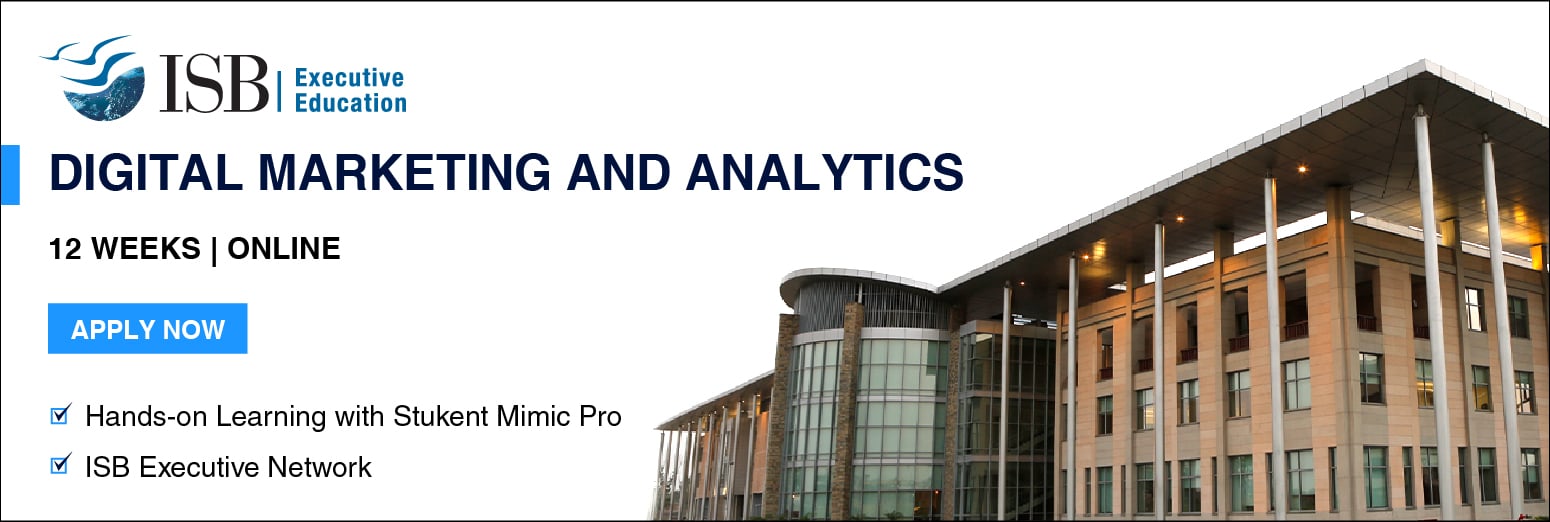Online Marketing 101: Everything You Need to Know

In the wide and ever-expanding world of commerce, online marketing is a symbol of new ideas and effectiveness. It has undeniably changed how businesses communicate with their customers. Moreover, the popularity and acknowledged value of online marketing have represented a whole new approach to promoting and advertising products and services, given the seemingly infinite canvas that the Internet offers for connecting to people worldwide. Therefore, businesses of every size are turning—or have already turned—toward online marketing to promote their products and services. Given the relevance of this field to every industry, we explore the nuance of the world of online marketing, also known as digital marketing or Internet marketing. Let’s dive right in!
What is Digital Marketing?

In the online world, online marketing, or digital marketing, is the foundation for promoting products or services using digital mediums to connect with consumers. Furthermore, this wide term includes many different kinds of marketing methods and technologies to leverage as a means to reach potential customers via the Internet. So, knowing what is digital marketing becomes very important if a marketer wants to optimize their web resources. Moreover, the heart of Internet marketing can be seen in its unmatched capacity to personalize the marketing process for each consumer’s wants and likes. This makes it a vital part of modern business methods.
Digital marketing is notable for being highly dynamic and adaptable. Marketers can use numerous methods to interact with their audience. Additionally, the range of jobs in digital marketing is diverse, including those who create content and specialize in SEO, manage social media, or focus on Pay-Per-Click (PPC) advertising. The kinds of digital marketing are also varied, from inbound tactics made for attracting and involving customers to outbound strategies aiming for broad outreach. Hence, this shows how the field can match many skills and interests of people, making it an exciting career choice.
In essence, digital marketing is where technology, creativity, and strategy come together. It is a crucial approach for businesses that want to succeed in this digital-first world. Thus, the field of online marketing offers not just methods for businesses to connect with their audience but also provides many varied career opportunities for professionals who aspire to have an impact within the digital domain.
ALSO READ: What is Digital Marketing? A Beginner’s Guide to the World of Digital Marketing
Why is Online Marketing Important?
Given the ubiquitous nature of the Internet, digital marketing has become indispensable in today’s business landscape. It also brings unique chances to engage directly with possible and current customers. Additionally, the detailed analytics from online marketing campaigns provide important understanding about customer habits, likes, and trends. As a result, knowing the importance of online marketing becomes very important for businesses that want to keep up in this digital era.
1. Accessing a Global Audience
The first advantage of online marketing is that it removes geographical limits. Therefore, by using the Internet, businesses can reach people from all over the world more easily compared to other methods such as print advertisements or television commercials. This makes online marketing particularly beneficial for companies with global operations.
2. Greater Advertising Avenues
Online advertising is becoming more and more important for all kinds of businesses. Further, it offers many benefits that are not possible with traditional methods, such as television or radio commercials, print ads in newspapers and magazines, etc. This, of course, includes a guarantee that the ad will be seen by a wide audience and faster than through other mediums.
3. Cost-Effective
Online marketing can be less expensive than traditional advertising methods. For instance, creating an advertisement on social media platforms like Facebook or Instagram doesn’t require spending money on printing costs and distribution.
4. Targeted Advertising
One major strength of digital marketing is its ability to focus on specific customer groups. Additionally, the Internet provides various tools for aiming at certain demographics, locations or even individuals. This cannot be matched by most traditional forms of promotion.
5. Increased Engagement
Online marketing channels allow for immediate and personal interaction with the viewers, thereby improving customer involvement.
6. Fast Results
Another benefit of digital marketing is immediate results. As a result, when you publish an ad online, it starts showing up almost instantly, unlike other methods, which may require a waiting period before you see any outcome.
7. Data-Driven Insights
Data-driven analysis of online marketing campaigns offers important information about customer behavior. Furthermore, this helps create more focused and successful marketing methods.
8. Flexibility and Control
Digital advertising gives marketers great flexibility in managing campaigns in terms of which social media platforms to opt for, allocation to targeting options, etc.
ALSO READ: What is the Role of Digital Marketing? Why is Digital Marketing Important?
Types of Digital Marketing

Digital marketing is a broad field, encompassing a variety of strategies and methodologies used to engage audiences online. As the digital landscape continues to evolve, so too do the types of digital marketing that companies can leverage. Among these, inbound marketing and outbound marketing, represent two foundational strategies, each with its unique approach to reaching potential customers. Let’s explore them in greater detail.
Inbound Marketing vs Digital Marketing
Inbound marketing stands as a key strategy within the vast domain of digital marketing. It centers on crafting content and experiences specifically designed to organically attract an audience. This approach utilizes methods such as content marketing, SEO, and social media engagement. Conversely, traditional outbound tactics primarily push messages to the audience, regardless of their interest or needs.
The debate on inbound vs outbound marketing often hinges on engagement tactics and content customization for the target audience. Inbound marketing prioritizes creating valuable content that resonates with its viewers. In fact, the integration of inbound vs outbound marketing tactics can forge a comprehensive and potent online marketing strategy. By leveraging the strengths of both approaches, marketers can ensure a dynamic and responsive marketing plan that addresses diverse consumer preferences and behaviors.
ALSO READ: Top 13 Emerging Digital Marketing Trends You Must Know as a Marketer
The Five Pillars of Inbound Marketing
A. SEO and Content Creation
At the core of inbound marketing efforts, the primary goal is to captivate audiences with content that not only holds intrinsic value but is also effortlessly discoverable via search engines. Thus, this pillar necessitates a symbiotic relationship between SEO and content creation, where content is meticulously crafted and optimized to meet the search intent of potential customers, thereby driving organic traffic and elevating the effectiveness of online marketing.
B. Social Media Engagement
Engaging with audiences on various social media platforms does more than just extend the reach of content; it also fosters a sense of community and cultivates brand loyalty. Therefore, social media engagement is indispensable, acting as a direct channel for brands to connect with their audience, receive feedback, and personalize their interactions, which are all critical components of a successful digital marketing strategy.
C. Email Marketing
Personalized email campaigns remain a potent mechanism for nurturing leads into customers. By segmenting email lists and tailoring messages to meet the specific needs and interests of different audience segments, email marketing serves as a direct line of communication that can significantly enhance customer relationships and drive conversions, reinforcing its role as a cornerstone of digital marketing.
D. Landing Pages and Calls-to-Action (CTAs)
The development of effective landing pages, paired with compelling CTAs, plays a pivotal role in converting visitors into leads and, ultimately, customers. This approach ensures that once potential customers arrive on a page, they are met with clear, actionable steps that guide them toward making a purchase or engaging further with the brand, thereby boosting the conversion rates and efficacy of online marketing campaigns.
E. Analytics and Strategy Optimization
Lastly, the ongoing analysis and refinement of strategies based on performance metrics are crucial for the sustained success of inbound marketing. Constantly monitoring, analyzing, and tweaking marketing efforts according to data-driven insights allows for the optimization of strategies, ensuring they remain aligned with business objectives and market dynamics, a process at the heart of effective digital marketing.
ALSO READ: 9 Important Steps to Create the Structure of a Digital Marketing Plan
The Five Facets of Outbound Marketing
A. Pay-Per-Click (PPC) Advertising
This outbound strategy, involving the placement of ads on platforms such as Google AdWords or Bing Ads, demands businesses to pay for each click, signifying a direct approach to driving targeted traffic. Consequently, PPC advertising stands as a key facet of digital marketing, allowing for precise audience targeting and immediate visibility in the competitive online marketing landscape.
B. Display Advertising
Employing visual ads on websites or social media to captivate target audiences represents another fundamental aspect of digital marketing. Display advertising combines the power of visual appeal with targeted messaging, thus enhancing brand awareness and engagement, a pivotal tactic when it comes to online marketing.
C. Affiliate Marketing
Partnering with others to promote products or services on a commission basis not only broadens reach but also enhances marketing efficiency. By leveraging the networks and credibility of affiliates, brands can tap into new segments of their target market, a strategy that underscores the collaborative nature of successful digital marketing.
D. Influencer Marketing
Collaborating with influencers offers a unique opportunity to tap into new audiences by leveraging the trust and rapport influencers have established with their followers. This capitalizes on the influencers’ ability to sway their audience preferences and behaviors, making it a potent tool for brands aiming to expand their reach in the digital marketing sphere.
E. Mobile Marketing
Lastly, with the ever-increasing prevalence of mobile users, optimizing marketing efforts for mobile platforms is indispensable. Ensuring websites, ads, and content are mobile-friendly is critical in capturing the attention of a mobile-first audience, emphasizing the importance of mobile marketing in the broader context of digital marketing strategies.
Understanding and mastering these pillars and facets are instrumental in navigating a complex and dynamic landscape of digital marketing. Importantly, professionals looking to establish a digital marketing career field can significantly benefit from deepening their knowledge and skills in these areas. Understanding the tactics and differences between inbound and outbound marketing is a cornerstone in learning how to become a digital marketer. Let’s take a closer look at what else is needed to do so.
ALSO READ: Master Mobile Marketing Tools: Here’s How to Get Started Easily
How to Become a Digital Marketer?

1. Gain a Solid Understanding of Digital Marketing Fundamentals
A strong foundation is imperative. This includes understanding the various types of digital marketing, such as content marketing, SEO, PPC, and social media marketing. Resources such as online courses, webinars, and blogs can provide valuable insights into what is digital marketing and how it is evolving.
2. Acquire Technical and Analytical Skills
A successful digital marketer needs to have a blend of technical and analytical skills. Learning how to use tools like Google Analytics, Google Ads, and Facebook Ads Manager will enable you to measure the effectiveness of your online marketing efforts. Understanding data and being able to interpret it to make informed decisions is crucial in a digital marketing career.
3. Specialize in a Specific Area of Digital Marketing
As you delve deeper into digital marketing, consider specializing in a specific area. Whether it is SEO, content marketing, or social media, specializing can make you more valuable to employers. Each of these digital marketing roles requires a deep understanding of certain tools and strategies, making specialization a key start to establishing a digital marketing career.
4. Build a Portfolio of Your Work
Building a portfolio is a practical step in showcasing skills and experience in online marketing. Include successful campaigns you have run, results from SEO efforts, social media profiles you’ve managed, and any content you’ve created. This portfolio will be crucial when applying for digital marketing roles and negotiating your digital marketing salary.
5. Stay Updated and Network
Finally, digital marketing is an ever-evolving field, with new trends and technologies emerging regularly. Stay updated by following industry news, attending webinars, and joining digital marketing communities. Networking with other professionals is also important; it can provide insights into the digital marketing career path and open up new opportunities.
ALSO READ: How do You Successfully Start a Digital Marketing Agency?
Different Roles in Digital Marketing
A. Content Marketer
Content marketers play a pivotal role in any digital marketing strategy. They are tasked with creating content that resonates with the target audience, from informative blog posts and engaging videos to compelling infographics and e-books. Their goal is not just to attract traffic but to retain it, nurturing leads into customers. Success in this role requires a blend of creativity, strategic planning, and an understanding of SEO principles to ensure content is both discoverable and appealing.
B. SEO Specialist
SEO specialists are the architects behind a website’s visibility on search engines. Through meticulous research and analysis of keywords, they ensure the content aligns with what users are searching for. Beyond keywords, they delve into website analytics to unearth opportunities for enhancing site performance, from speeding up load times to improving the structure for better crawlability by search engines. Their work directly impacts not just the volume of organic traffic but the quality of that traffic as well.
C. Social Media Manager
Social media managers serve as the voice of a brand across social platforms, crafting content that sparks conversations and fosters a sense of community. This role requires a keen understanding of different social media dynamics and the ability to analyze engagement data to refine strategies. Social media managers also oversee paid advertising on these platforms, creating campaigns that amplify reach and drive specific business objectives.
D. PPC Specialist
PPC specialists are focused on the paid side of digital visibility. They manage and optimize pay-per-click advertising campaigns across various platforms, including Google Ads and Facebook Ads. Their expertise in bidding strategies, keyword selection, and ad creative design plays a crucial role in maximizing the return on investment of advertising budgets. Analytical skills are essential, as is a constant eye on campaign performance and market trends.
ALSO READ: 9 Ways to Make SEO and PPC Work Together to Boost Your Traffic
E. Email Marketing Specialist
Email marketing specialists design targeted email campaigns to engage and convert audiences. This involves crafting compelling messages, segmenting audiences for personalized communication, and analyzing open and conversion rates to refine future campaigns. Their work is crucial for customer retention and driving sales through direct communication.
F. Digital Marketing Analyst
Digital marketing analysts are the data wizards of the digital marketing world. They collect and interpret data from various sources to gauge the effectiveness of marketing efforts. Through their analysis, they provide actionable insights that inform strategic decisions, helping to optimize marketing campaigns for better performance and return on investment.
G. UX/UI Designer
UX/UI designers ensure digital platforms provide an intuitive and enjoyable experience for users. Their work involves designing the visual layout and interactive elements of websites and apps, with a focus on simplicity, accessibility, and user engagement. Collaboration with developers and marketers is key to ensuring that the final product meets both user needs and business goals.
H. Conversion Rate Optimizer
Conversion rate optimizers are focused on turning visitors into customers. They utilize tools such as A/B testing and user feedback to enhance the website experience, identifying barriers to conversion and testing different solutions to overcome them. Their goal is to increase the efficiency of digital assets in achieving business objectives, whether that is generating leads, sales, or sign-ups.
I. Influencer Marketing Specialist
Influencer marketing specialists leverage the power of social influence to promote brands. They identify and collaborate with influencers whose audience aligns with the brand’s target market. Negotiating partnerships, crafting campaign strategies, and measuring campaign success are all within their purview, aiming to maximize brand visibility and credibility.
J. E-commerce Specialist
E-commerce specialists are at the forefront of online sales strategies. They manage product listings, optimize the online shopping process, and analyze sales data to boost online transactions. Their role is crucial in navigating the competitive e-commerce landscape, ensuring that the business maximizes its online sales potential.
K. Digital Marketing Manager
Then there are the digital marketing managers who oversee the broader digital marketing strategy. They coordinate the efforts of different specialists, ensuring that the company’s online marketing goals are achieved cohesively. Budget management, strategic planning, and aligning digital initiatives with overall business strategy fall under their responsibilities.
ALSO READ: How Online Marketing Can Help You Reach a Global Audience
Digital Marketing Skills

The dynamic field of digital marketing requires a diverse set of skills, ranging from general competencies that all marketers should possess to specialized skills that cater to specific aspects of digital marketing. Before knowing the skills needed, however, let’s understand the balance between being a generalist and a specialist. This can help individuals tailor their learning path and career trajectory in digital marketing.
Generalist vs Specialist in Digital Marketing
In the world of digital marketing, professionals often debate the merits of being a generalist—someone with a broad knowledge base across multiple disciplines—versus a specialist—someone who focuses deeply on a single aspect of digital marketing. Both roles play crucial parts in the online marketing ecosystem.
1. Generalist Skills in Digital Marketing
A. Content Creation and Strategy
Creating compelling content is foundational for any digital marketer, and understanding the strategy behind content distribution is equally important. Consequently, this involves a blend of creativity, market awareness, and analytical skills to tailor content that resonates with the target audience and aligns with the brand’s goals.
B. SEO and SEM Basics
Having a solid understanding of SEO and Search Engine Marketing (SEM) is crucial. These skills ensure that content is not only discoverable but also ranks well on search engines, thereby driving organic traffic to a company’s digital assets. Therefore, generalists in digital marketing should know how to optimize website content and develop strategies that enhance visibility and engagement.
C. Data Analysis and Interpretation
In digital marketing, analyzing and interpreting campaign data is invaluable. This involves using analytics tools, which measure marketing success. They also draw actionable insights that consequently inform future strategies.
D. Social Media Management
Understanding social media to engage audiences and promote content is essential. This skill involves content creation, scheduling, analysis, and strategy development. It is vital for brand awareness and community engagement.
E. Email Marketing
Finally, crafting effective email campaigns that motivate recipients to take action involves understanding segmentation, personalization, and analytics. This skill set drives conversions and fosters lasting relationships with customers.
ALSO READ: What Does an Email Marketer do? Does it Affect Business Success?
2. Specialist Skills in Digital Marketing
A. Advanced SEO Techniques
Specialists may dive deeper into the nuances of SEO, including areas such as technical SEO, link building, and local SEO strategies. This deep dive can significantly enhance a website’s visibility and ranking, making advanced SEO techniques highly valuable for improving online presence.
B. PPC and Paid Media Expertise
Specializing in PPC and paid media demands an in-depth understanding of pay-per-click campaigns across various platforms. Specialists need to master bidding strategies, keyword research, and ad copywriting to ensure the effectiveness of paid advertising efforts and secure a high return on investment.
C. Content Marketing Specialization
Beyond basic content creation, specialists focus on specific types of content marketing like video production, podcasting, or infographics. This specialization allows brands to distinguish themselves in a crowded digital marketing landscape by offering unique and engaging content that captures the audience’s interest.
D. Web Analytics and Performance Optimization
Similarly, specialists in web analytics and performance optimization employ their understanding of analytics tools and methodologies to enhance digital marketing efforts. Analyzing user behavior, employing Conversion Rate Optimization (CRO) strategies, and conducting A/B testing are all essential for improving website performance and user experience.
E. Digital PR and Influencer Marketing
Lastly, building relationships with influencers, bloggers, and journalists requires specialized skills in digital PR and influencer marketing. By strategically partnering with influential figures, specialists can leverage their reach to enhance a brand’s online presence and authority, thereby reaching broader audiences.
Balancing generalist and specialist skills offers a comprehensive approach to online marketing.
ALSO READ: The Top 8 Steps to Become a LinkedIn Influencer: A Guide
Is Digital Marketing a Good Career?
Undoubtedly, this is an excellent career path for individuals interested in the digital world, communication, and the dynamics of online advertising and sales. The field is known for its versatility, constant evolution, and opportunities for creative and analytical work. The following points offer a closer look at what makes this an interesting field.
1. Scope of Work and Prospects
Digital marketing, with its expansive reach, significantly influences various sectors, thereby offering a spectrum of career prospects. Moreover, the continuous growth of online media and the digitalization of customer interactions significantly amplify the demand for skilled digital marketers. This, in turn, presents a career path replete with outstanding long-term prospects. Here’s an overview of the scope for various digital marketing roles across different industries:
A. E-commerce and Retail
The boom in online shopping has notably escalated the demand for digital marketers. These professionals are instrumental in driving sales through targeted SEO, PPC, and email marketing campaigns. Additionally, in the e-commerce and retail sectors, digital marketers are pivotal in crafting compelling online shopping experiences. Consequently, these experiences not only boost sales but also enhance customer loyalty.
B. Technology and SaaS
In the realm of technology and Software as a Service (SaaS), there is a constant demand for digital marketing professionals. These experts are essential in effectively communicating complex products to potential customers. In these sectors, therefore, content marketing and user experience are key for lead generation and conversion. This underscores the need for specialized strategies.
C. Health Care
Digital marketing within health care focuses on patient engagement and education. Marketers dedicated to this field work tirelessly on creating informative content, managing impactful social media health campaigns, and enhancing the online patient experience.
D. Finance and Insurance
In the finance and insurance sectors, digital marketing strategies concentrate on building trust and simplifying complex services for consumers. Consequently, tactics such as email marketing, content marketing, and strategic social media initiatives play key roles in educating and engaging potential clients.
E. Real Estate
In real estate, digital marketing is key for showcasing properties and connecting with buyers. Interactive virtual tours, targeted social media advertising, and SEO-optimized listings help in attracting interested parties. Additionally, email marketing campaigns can provide valuable information and updates to potential buyers, further nurturing leads.
F. Entertainment and Media
The entertainment and media industry thrives on digital marketing to captivate audiences and promote content. Digital marketers play a crucial role in this space, whether it is engaging social media campaigns, SEO strategies to increase content visibility, and PPC ads to drive traffic to new releases. Moreover, analytics and data-driven insights allow for the optimization of marketing strategies, ensuring content reaches its intended audience effectively.
G. Education and Online Learning
The rise of online learning platforms has ushered in a significant need for digital marketing expertise in the education sector. Digital marketers promote courses with content marketing, SEO for discoverability, and targeted ads for students. Additionally, social media platforms are utilized to build communities and foster engagement among learners.
ALSO READ: Top 10 Digital Marketing Trends 2024: What to Expect
2. Benefits and Perks
Digital marketing roles are often associated with attractive benefits and perks, highlighting the sector’s appeal. These advantages include:
A. Remote Work Flexibility
Many digital marketing positions offer the flexibility to work remotely. This not only allows professionals to maintain a work-life balance but also caters to a more diversified talent pool, irrespective of location.
B. Continuous Learning Opportunities
Given the ever-evolving nature of digital marketing, professionals in this field are presented with continuous learning opportunities. As a result, the work is dynamic, intellectually stimulating, and in tune with the latest industry trends and technologies.
C. Career Growth
The broad spectrum of digital marketing provides a fertile ground for career advancement. Moreover, professionals in this field can ascend from specialized roles to managerial positions, thereby experiencing substantial career growth.
D. Competitive Salaries
As the demand for skilled digital marketers intensifies, so does the competitiveness of the salaries offered. Specialized roles, particularly those focusing on data analytics, SEO, and digital strategy, command higher salaries, reflecting the high value placed on these skill sets.
There is a notable abundance of opportunities in digital marketing, given the sector’s substantial growth and the increasing number of businesses prioritizing their online presence. Specialized roles, particularly in data analytics, SEO, and content marketing, are in high demand. This demand is driven by companies’ need to enhance their online visibility and engagement, therefore underscoring the sector’s vitality.
ALSO READ: 4 Myths About E-commerce and Digital Marketing Debunked
3. Salary Overview
Salaries in digital marketing vary widely depending on the role, experience, location, and size of the company. Here are some general average annual digital marketing salary listings for different digital marketing roles:
- SEO Specialist: ₹480,000
- Influencer Marketing Specialist: ₹480,000
- Social Media Manager: ₹540,000
- E-commerce Specialist: ₹610,000
- Email Marketing Specialist: ₹650,000
- Conversion Rate Optimizer: ₹650,000
- Digital Marketing Analyst: ₹777,369
- Content Marketer: ₹800,000
- UX/UI Designer: ₹800,000
- PPC Specialist: ₹810,000
- Digital Marketing Manager: ₹1,160,000
ALSO READ: The Ultimate Guide to 20 Digital Marketing Types for Aspiring Marketers
In summary, online marketing is open to those with a creative bent of mind and a head for strategizing campaigns. Additionally, mastering digital marketing can lead to diverse career opportunities. With the right training, individuals can navigate the complexities of the digital space effectively. Furthermore, the demand for digital marketing expertise continues to grow, making it a promising path for aspiring marketers. Furthermore, Emeritus’ digital marketing courses provide an outstanding opportunity for those wanting to enhance their comprehension and proficiency in online promotion. Start your journey as a digital marketer now. Discover how online marketing can change your career and digital communication.
Write to us at content@emeritus.org







